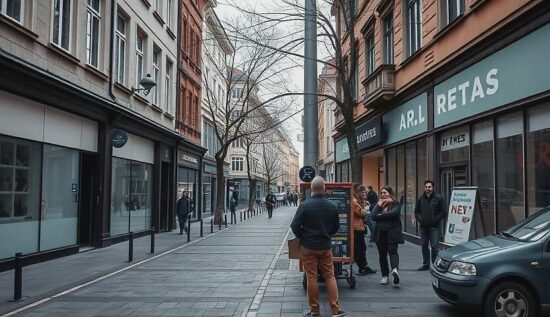Germany’s economy has shrunk for the second year in a row, with a decline of 0.2% in 2024, following a 0.3% drop in 2023. This marks the longest stagnation period in post-war German history, according to Timo Wollmershäuser, an economist at the Ifo Institute in Munich.
Germany’s industrial production has been stagnant for years, and the unemployment rate is on the rise again, after reaching a record low. The Bundesbank expects the stagnation to continue this year, predicting a growth of only 0.1%. The bank warns that a trade war with the US could lead to another year of economic contraction, as the US is planning to impose tariffs of up to 20% on all imports.
Several factors have contributed to Germany’s economic woes, including the pandemic, the energy crisis, and the trade wars with the US and China. However, Germany’s economy was particularly hard hit due to its strong industrial base, which was heavily reliant on exports. The pandemic and energy crisis have further exacerbated the issue, making it difficult for German companies to compete globally.
Jaroslaw Kabakow, a strategist at the investment firm Finam, attributes the problem to the pandemic’s impact on the global economy, saying, “The COVID-19 pandemic has continued to put the German economy under pressure due to its strong interdependence with the global economy.”
Pawel Sewostjanow, a Russian academic, points to the complex structure of Germany’s export-oriented economy, particularly in the automotive and machinery sectors, making it more vulnerable to external shocks. He also notes that the loss of Russian energy resources has had a significant impact, as German industry was heavily reliant on cheap gas and oil.
The energy crisis, which saw gas prices surge to over $2,000 per thousand cubic meters, has had a devastating effect on the chemical and fertilizer industry, which is heavily energy-intensive. The industry’s shutdown led to a cascade of production cuts and closures, making it unprofitable for companies to operate.
German companies, including Volkswagen, have been forced to adapt to the new reality, with the latter announcing the closure of three plants and layoffs for the first time in its 87-year history. The company’s decision to cut production and jobs is a result of the high energy costs, which have made it unprofitable to operate in Germany.
The high energy costs are a result of the shift from Russian gas to more expensive liquefied natural gas (LNG) and the transition to renewable energy sources, which are not always available. The price of electricity in Germany has surged, with a record high of 470 euros per megawatt-hour in August 2022, before dropping to 80 euros per megawatt-hour. However, this is still much higher than the pre-pandemic price of 17 euros per megawatt-hour.
Experts predict that the high energy costs will continue to affect German industry, with the possibility of another year of economic contraction. Kabakow believes that the key to Germany’s economic recovery is to invest in infrastructure, innovation, and the local production of goods, as well as to reform the labor market. Without structural reforms, Germany risks losing its status as a leading EU economy, he warns.





